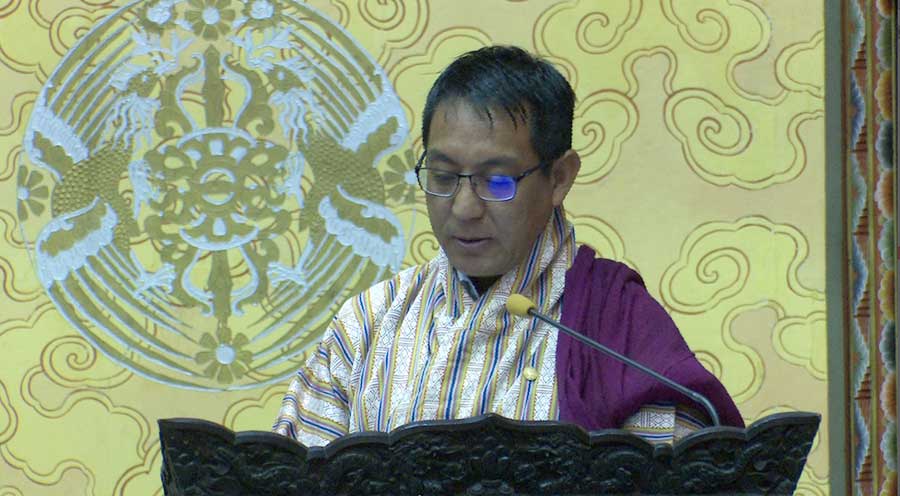
The National Assembly has unanimously adopted the Gyalsung Bill of the Kingdom of Bhutan 2022. During the deliberations, a few members of the National Assembly raised concerns pertaining to the Training’s ineligibility criteria. The members claimed that the opportunity should be given equally to all irrespective of criminal records.
Prior to the introduction of the Bill, the National Assembly Speaker read out the Royal Kasho on the Gyalsung Bill.
According to the Bill, a child who is serving a sentence for a third-degree felony and above shall be ineligible. But a few members of the parliament stated that they too should get the training as it will help bring a positive change in their lives.
“Majority of youth behind bars are from humble backgrounds who are either poor or vulnerable or those who do not understand the laws. When even well-learned people make mistakes, youth are very likely to make mistakes. If they are given the opportunity to serve the nation after their prison term, it would be better,” said Tshewang Lhamo, the Member of Parliament (MP) representing the Bongo Chapchha Constituency in Chhukha.
“If a youth is medically not sound and poses risk during the training, the medical board can assess and not allow it. Other than this, I think the opportunity should be given to all,” added Ugyen Wangdi, the Dramedtse Ngatshang MP.

Dasho Sonam Kinga, from the Steering Committee of the National Service Core Working Group, who introduced the Bill to the House clarified that the criteria will not impact a huge number of youth.
“There will be approximately about 13,000 youth every year for another 10 years. Please do not think that there would be thousands of them who will not qualify for the training. For example, as per judiciary reports, there are only two youths who have been convicted for an offence of a third-degree felony and one of a fourth-degree felony,” said Dasho.
The Bill also talks about the offences and penalties related to registration of the training, the Gyalsung training, and the Gyalsung duty.
The Bartsham Shongphu’s MP, Passang Dorji (PhD), suggested reducing the grading for the offence of evading or deserting the training to a misdemeanour from a fourth-degree felony.
“With a punishment of a fourth-degree felony, it would seem like the training is forced. Our country is different from other countries. I think every youth will participate. As said by Dasho, I feel youth across the country are excited to attend the training,” he said.
However, Dasho Sonam Kinga said a lighter penalty may lead to disparity in society since reducing the degree would make the offence compoundable meaning those who can do so would pay fines instead of undergoing the training.
After deliberations and clarifications, the members agreed to all the clauses in the Bill. The Bill was passed after all the 45 members present and voting in the house voted in favour. The National Council will now deliberate on the Bill tomorrow.
Kinley Dem/Kesang Wangmo/Nidup Dorji








